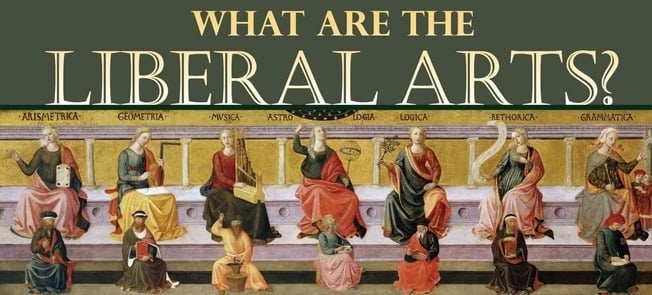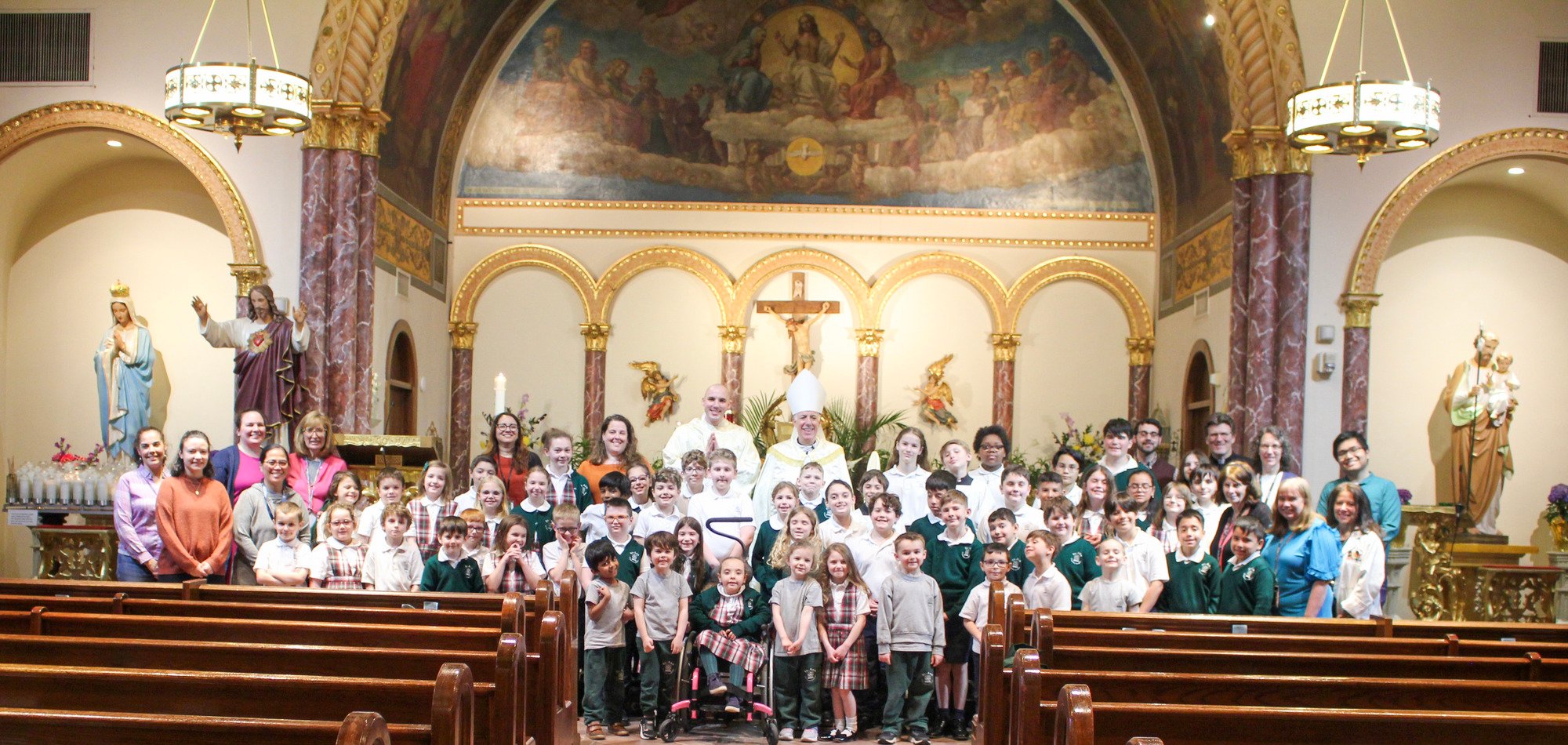Catholic Classical Education
-
A Classical education for today & for eternityOur Catholic classical liberal arts curriculum operates on the premise that our good and loving God has created all that is for a purpose and with a plan. Moreover, God has given humanity special gifts that enable us to learn and grow, to apply ourselves in seeking what is true, good, and beautiful. The gifts of intellect and free will, which God gave to the human person, who is the pinnacle of God’s creative work, enable humans to order their thinking with reason and to exercise virtue in their choosing. The Catholic classical liberal method of education seeks to present learning as an adventure that encourages the student’s sense of wonder at how God’s order and plan can somehow be discovered in all academic subjects.
Learning at St. Ann Classical Academy involves more than just absorbing facts and information for the sake of a test. We provide a high-quality classical education and encourage the development of students' gifts and potential. At our New Jersey Catholic school, our aim is for our students to learn how to think and reason well. These skills carry students through future academics and life. Students at St. Ann Classical Academy become smart and wise to come to understand that both reason and faith are necessary, rather than opposed to each other.
At St. Ann Classical Academy, our desire is to awaken wonder and awe as our students learn about order, patterns, and natural laws found within mathematics and the sciences. Students' hearts and minds are opened to the beauty and truth found in great literature and in the lives and events of historical heroes and saints. A strong language arts foundation enables students to express themselves clearly and effectively.
Our Catholic classical liberal arts curriculum is rooted in the understanding that everything in creation has a purpose and reflects the wisdom and love of God. We help students discover truth, beauty, and goodness across every subject—and learn to delight in them. -
What Makes Classical Catholic Education Different?
While many schools focus on learning what to think, we focus on helping students learn how to think. We invite them into a lifelong love of learning by awakening wonder—about the natural world, the patterns in math, the logic behind language, the beauty of great literature, and the lives of saints and historical heroes.
At St. Ann, your child will:
Be taught to think critically and reason clearly
Build strong foundations in reading, writing, and speaking
Grow in character and virtue alongside academic excellence
See the harmony between faith and reason
Learn in a joyful, structured, and loving environment
-

-
The Seven Liberal Arts: A Time-Tested Path to Wisdom
At St. Ann Classical Academy, we prioritize critical thinking and a pursuit of truth, beauty, and goodness in our classical education. The Quadrivium (arithmetic, music, geometry, astronomy) and the Trivium (grammar, logic, rhetoric) make up the seven classical liberal arts of antiquity. This is the education that great minds of the past such as Plato, Aristotle, and Saint Thomas Aquinas would have received.
Rooted in the Trivium - Latin for "the three ways" of learning - our approach encompasses three developmental stages: Grammar, Logic, and Rhetoric. In the Grammar stage, we tap into children's natural curiosity, training them to absorb diverse knowledge. Progressing to Logic, students in Grades 5-8 engage in analytical thinking, questioning, and logical reasoning. By the time our students graduate 8th grade, they are ready to enter into the Rhetoric stage (9-12), where they mature into expressive individuals, equipped to articulate informed judgments through writing and public speaking. -
The Quadrivium includes arithmetic, geometry, music, and astronomy—four disciplines that reveal the deep order and harmony of God’s creation.
Arithmetic trains the intellect in precision and logic
Geometry reveals patterns and proportion in the world around us.
Music expresses beauty and order through sound and number.
Astronomy opens our eyes to the rhythms and structure of the cosmos.
These are not taught as isolated subjects, but as interrelated ways of seeing the world as it truly is: designed, intelligible, and good. Your child will come to see mathematics and science not merely as tools, but as lenses through which we glimpse the Creator Himself.
This approach to learning—rooted in both reason and wonder—nurtures habits of attention, reverence, and joy. It forms students not only for academic success but for a deeper love of truth and a lifelong relationship with God.
-
FAITH & REASON IN HARMONYAncient philosophers sought wisdom by studying the natural world. Christianity perfects that search with the gift of divine revelation. At St. Ann, we bring both together—forming students in reason and faith, truth and grace, so they may know and love God more deeply.
Our students come to see that the pursuit of knowledge is not separate from the life of faith—it is a part of it. Every class, every lesson, is an invitation to grow in virtue, wonder, and understanding.
-
WHY FAMILIES CHOOSE St. ANNAt St. Ann Classical Academy, families don’t just find a school—they discover a mission-driven community where children are formed in mind, heart, and soul.
Parents are captivated by the opportunity for their children to receive an education that does more than check boxes—it forms the whole person. At St. Ann, students are equipped with the tools of learning and taught how to think, not just what to think. Families value our emphasis on virtue formation, the teaching of cursive and Latin, and a strong foundation in reading, writing, and mathematics. They also appreciate our low-tech environment, which preserves childhood, promotes focus, and fosters real human connection in the classroom.
Our classical Catholic approach nurtures curiosity, builds character, and prepares students not only for academic success, but for a life of faith, purpose, and joy.
At St. Ann, your child will be:- Truly known and loved
- Formed in faith and virtue, not just academics
- Challenged to think deeply and act nobly
- Prepared for high school and life beyond it
- Surrounded by a supportive, joyful community of like-minded families
Don’t just take our word for it—read what our parents, students & alumni have to say:We invite you to come and experience what so many families already have:A school where saints and scholars are formed, and children are prepared
not just for today—but for eternity. -

